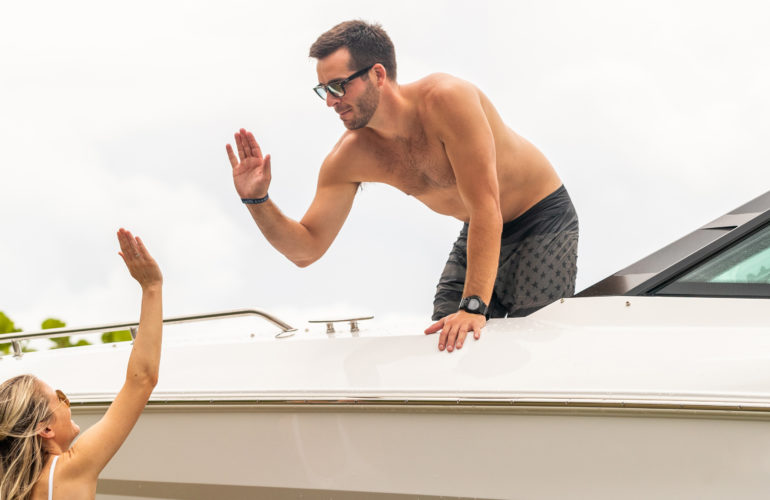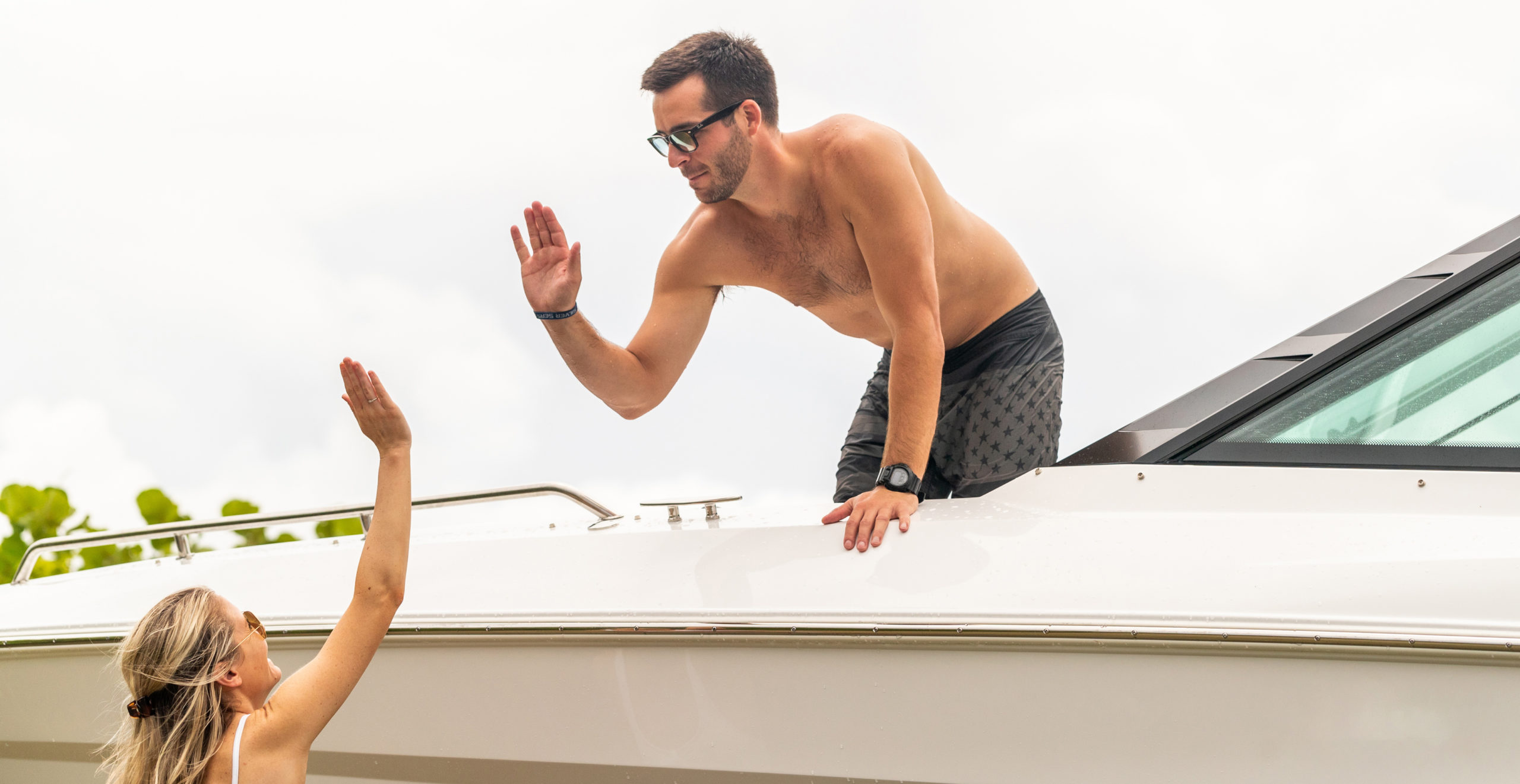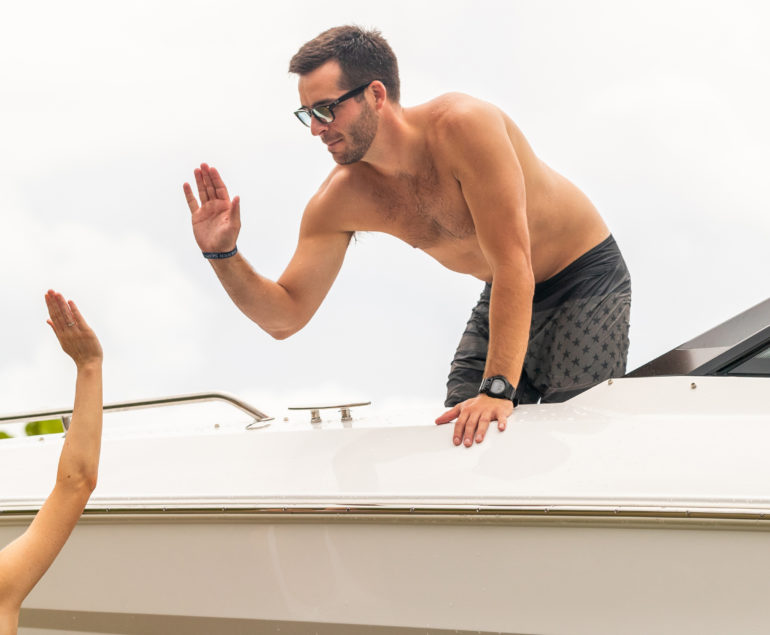How much do I need to put down to finance a boat or RV?
How much do I need to put down to finance a boat or RV?
At Boatloanhq.com we specialize in helping boat owners get loans to purchase their family’s dreams. We frequently get asked the same question from customers “how much money do I need to put down on a boat loan?
Marine lenders will take the same sorts of factors into account when determining whether to loan on a boat as they do with similar types of loans. One of those factors includes how much you need to put down.

- Credit rating
- Debt to income ratio
- Job and homeownership stability
- Net worth
- Price of the boat
What we’ve discovered over years of helping people fund their outdoor family lifestyle is that unlike a home, the amount you need put down largely depends not only on your creditworthiness but on the cost of the boat itself. For example, If you purchase a boat for under $150,000, you will probably just need a 10% down payment. But if you’re looking at a larger boat that costs up to $250,000, you will need to put down 15%. A yacht or a houseboat that costs up to $500,000? Expect to put down 20%.
If you have a trade-in for a new unit or new to you, nearly all banks will accept the trade equity (how much your used boat is worth) as your down payment. This also helps you borrow less and build equity faster in your new boat.
Of course, much of it depends on your credit scores and finances in addition to the cost of the boat. That is where we may be able to assist you. We have worked with several buyers over the years to get their down payment below 10%. It’s important that you pick the right company or bank to work with when financing your boat. You need an advocate who can work on your behalf with the banks. That’s why you should consider us as your boat lending source. We can help you determine how much boat you can afford and assist you work out a down payment that works for you.
Should you trade in your boat or RV or sell it privatley?
Should you trade in your Boat or RV or sell it privately?
Assuming your dealer accepts used trades towards a new boat or RV purchase, you generally have two primary options available - either trade-in your used boat at a lower price towards the new purchase or sell your existing boat privately at generally a higher price and apply those proceeds towards the purchase of your new boat or RV.
Trading in your existing boat or RV -
Most dealers are willing to take trades since they can resell them at a profit. That’s typically why you get a lower amount on a trade then selling the unit yourself. The dealer needs to make money in addition to covering their flooring and marketing costs to resell your boat. Nearly all dealers want trades as they typically can make the same, if not more, on a used boat as compared to a new model.
Dealers arrive at their trade-in price through a variety of methods. Either they use an accepted industry pricing guide such as NADA or Edmunds or they average several comparable boats or RV on the market and reduce the value from there by 10-20%. They also will deduct for any needed repairs or excessive wear and tear on the unit. Since most dealers strive to make 15-22% on your boat they need to offer you a lower trade-in value.
Dealers often will highlight the potential tax benefit of trading in as opposed to selling it yourself. Let’s look at how that may work.
In states with a sales tax, you often only pay sales tax on the new boat price minus the value of your old boat trade-in. Here is how the tax math looks in numbers…
New boat/RV = $50,000 Purchase Price
Old boat/RV = $20,000 Trade-In Value
In this scenario, you only have to pay sales tax on the difference between the purchase price ($50,000) and the trade-in value ($20,000). This means you only pay taxes on $30,000! Assuming a sales tax of 5%, you would have a sales tax of $1,500 ($30,000 x 5%) due at closing.
If you sell your old boat or RV to a private party, and then turn around and buy a new unit from a dealer, the dealer will have to charge you sales tax on the full purchase price. Using the example we used above, buying the new boat without a trade-in could result in a tax bill of (5% x $50,000) $2,500! That’s a full $1,000 more than trading in the boat. Taxes should not be the deciding factor on whether or not to trade in your boat, but you should at least be aware of the difference.
What most dealers won’t tell you is that many of them can run your private sale through their dealership (where allowed by the state) as an “in and out” deal. The dealership sells your used boat to your private buyer and then applies those tax savings to your new deal. This is by far the best way to get both the tax benefits and a higher price for your used boat or RV. Definitely ask your dealer if they would do an in and out deal for you if you wanted to purchase their new boat or RV.
A word of caution. Many dealers will raise their offer on the trade to appear as though you are getting about the same price you would by selling it privately. It’s basic economics that they can’t offer you retail for your boat without adding those costs somewhere else in the deal. Typically, they will raise the price of the new unit to cover their inflated trade price.
So why would anyone trade their existing boat or RV into a dealer and knowingly accept a lower price? This is where your personal situation comes into play. Depending on how involved you want to be and how much work you want to put in, you get to skip the hassles of selling your boat or RV to a private party. With a trade-in, you do not have to worry about managing potential buyers, lake or road tests, repairs, or warranty. You also don’t have to coordinate transportation to the new owner but of course, this convenience comes at a price. You will almost always get more money if you sell your boat yourself versus a trade.
Selling your existing boat or RV -
The clear price advantage of selling your existing boat or RV comes with some extra work. But depending on your personal situation it can mean a little more work but oftentimes a considerable amount of more money. The internet has changed how we sell everything as a private seller. Gone are the days when we parked our boat or RV in our driveway and placed a sign on it - hoping to sell it to one of our close neighbors. Now, through a myriad of local, regional, and national websites, we can sell our used boat or RV to a vastly expanded market and a number of potential buyers. Granted there is still effort involved to price your unit, market it, and wade through the number of potential buyers but if you’re so inclined, you will get more money for your boat or RV.






